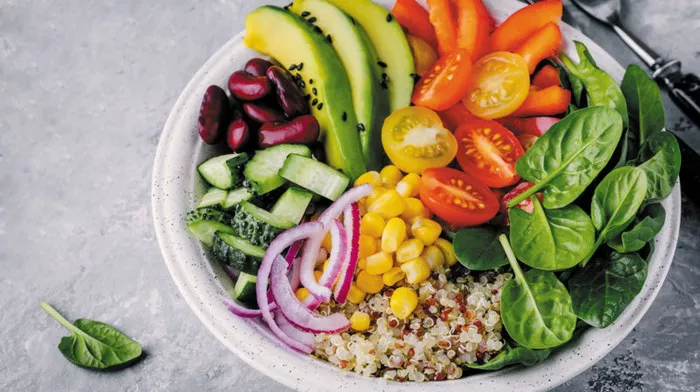When it comes to maintaining a healthy diet, the debate between fruits and vegetables often takes center stage. Both are essential components of a balanced diet, but many wonder which one packs a more powerful nutritional punch. In this article, we will delve into the depths of nutrition to compare fruits and vegetables. By examining key aspects such as vitamins, minerals, fiber, antioxidants, and health benefits, we aim to shed light on this age-old question.
Vitamins: The Building Blocks of Nutrition
Fruits:
Vitamin C: Fruits such as oranges, strawberries, and kiwis are renowned for their high vitamin C content. This vitamin is vital for boosting the immune system, promoting healthy skin, and aiding in wound healing.
Folate: Many fruits, including bananas and avocados, are excellent sources of folate, a B-vitamin crucial for cell division and DNA synthesis.
Vegetables:
Vitamin K: Leafy greens like spinach and kale are packed with vitamin K, which plays a crucial role in blood clotting and bone health.
Vitamin A: Carrots, sweet potatoes, and broccoli are rich in vitamin A, essential for maintaining healthy vision and skin.
Minerals: Nutrient Powerhouses
Fruits:
Potassium: Bananas and oranges are known for their high potassium content, which helps regulate blood pressure and maintain proper muscle function.
Magnesium: Fruits like figs and avocados contain magnesium, an important mineral for muscle and nerve function.
Vegetables:
Iron: Spinach and legumes are excellent sources of iron, which is essential for transporting oxygen in the blood.
Calcium: Broccoli and collard greens provide a calcium boost for strong bones and teeth.
Fiber: A Key Player in Digestive Health
Fruits:
Soluble Fiber: Apples and pears are rich in soluble fiber, which aids in lowering cholesterol levels and promoting a feeling of fullness.
Insoluble Fiber: Berries and kiwis contain insoluble fiber, which helps prevent constipation and keeps the digestive system healthy.
Vegetables:
Dietary Fiber: Most vegetables, including broccoli, Brussels sprouts, and cauliflower, are excellent sources of dietary fiber, promoting regular bowel movements and overall gut health.
Gut Microbiome: Some vegetables, like artichokes and garlic, act as prebiotics, supporting a healthy gut microbiome.
Antioxidants: The Free Radical Fighters
Fruits:
Antioxidant Variety: Fruits offer a diverse range of antioxidants, such as flavonoids in berries and carotenoids in oranges and mangoes, which help protect cells from oxidative damage.
Polyphenols: Grapes, apples, and cherries contain polyphenols that contribute to heart health and reduce the risk of chronic diseases.
Vegetables:
Cruciferous Power: Cruciferous vegetables like broccoli and cauliflower contain sulforaphane, a potent antioxidant that may reduce the risk of cancer.
Beta-Carotene: Carrots and sweet potatoes are rich in beta-carotene, which can help maintain healthy skin and vision.
Health Benefits: Beyond Nutrition
Fruits:
Heart Health: Regular consumption of fruits is associated with a reduced risk of heart disease due to their high fiber and antioxidant content.
Weight Management: Many fruits are low in calories, making them an excellent choice for those looking to manage their weight.
Vegetables:
Cancer Prevention: Vegetables, particularly cruciferous varieties, have been linked to a reduced risk of certain cancers, such as lung and colon cancer.
Bone Health: The vitamin K and calcium in vegetables contribute to strong bones and may reduce the risk of osteoporosis.
In conclusion, both fruits and vegetables are nutritional powerhouses, each offering a unique set of vitamins, minerals, fiber, and antioxidants. The choice between them ultimately depends on your specific dietary needs and preferences. To maximize your nutritional intake, it’s advisable to include a variety of both fruits and vegetables in your daily diet.
























